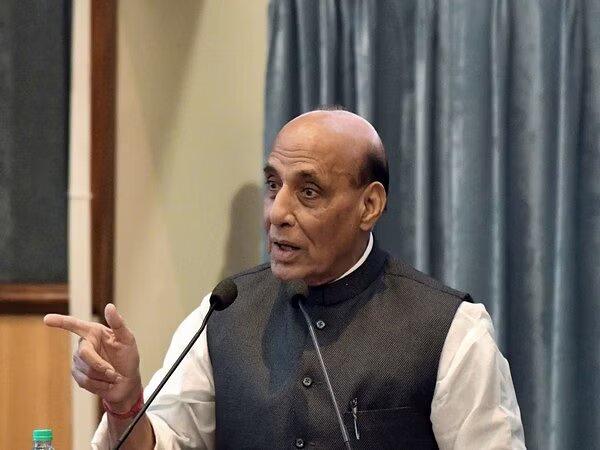Monday, Rajnath Singh, the defense minister of India, said that countries need to talk to each other and build trust in order to deal with issues like climate change, piracy, terrorism, and drug crime. He also said that these issues should be dealt with together. Singh was speaking at the Goa Maritime Conclave (GMC) 2023 of the Indian Navy, which started on Sunday. On October 31, the meeting will come to an end.
The theme of the GMC is about “Maritime Security in the Indian Ocean Region: Converting Common Maritime Priorities into Collaborative Mitigating Frameworks” .
“How do we get people to trust us?” Singh said, “We build trust through dialogues like the GMC, joint exercises, industrial collaboration, sharing of resources, respecting international law, and so on.” He also said that when countries work together, trust will lead to the best results in their shared maritime goals.
They said, “Because our countries deal with many problems together. Speaking with each other and having talks is a way to build trust, the defense minister said.
Singh used the Sanskrit saying “Sanghe Shakti Kaliyuge” to explain that in this day and age, strength lies in working together, and that this kind of balance can also be reached in foreign relations.
“In our situation, we all need to work together to deal with common maritime issues like climate change, terrorism, drug trafficking, piracy, and overfishing on the high seas.”
The defense minister said, “If the threats we face are supranational in scope and impact, then international efforts to deal with them will indeed have limited effects.” He also said that multinational collaborative models for dealing with regional problems could be used.
Singh said that illegal, unreported, and unregulated (IUU) fishing is a problem in the area because resources are being used up too quickly.
He also said that controlling IUU fishing is a top concern for everyone in the maritime world because it threatens the ecosystem, economic security, and food security in the region and around the world.
He said that it was important for countries to work together to collect, share, and work together on monitoring data.
“It will help in identifying actors with irregular or threatening behaviour, which needs to be countered resolutely,” said Singh.
He also said that the “pandemic of climate irresponsibility” will be a threat to society and that there is a vaccine for it, just like there is one for the most recent pandemic (COVID-19).
“It’s a shot of working together, being responsible for the climate, and advocating for climate justice.” “There is no reason why people can’t solve this problem either if all countries agree to cut their emissions by investing in a green economy and shared technology,” Singh said.
People’s short-term goals make them want to break foreign laws, but he warned that doing so would destroy the civilized way of traveling by sea.
“This level of narrowness will lead to the law of the jungle.” Singh said, “Our common safety and prosperity can’t be protected unless everyone works together and follows maritime rules.”
“Maritime Security in the Indian Ocean Region: Converting Common Maritime Priorities into Collaborative Mitigating Frameworks” is the theme of this year’s GMC, according to a source in the military service.
The Indian Navy is hosting top representatives from Bangladesh, Comoros, Indonesia, Madagascar, Malaysia, Mauritius, Myanmar, Seychelles, Singapore, Sri Lanka, and Thailand at the GMC. They are chiefs of navies, heads of maritime forces, and countries on the coasts of the Indian Ocean.
